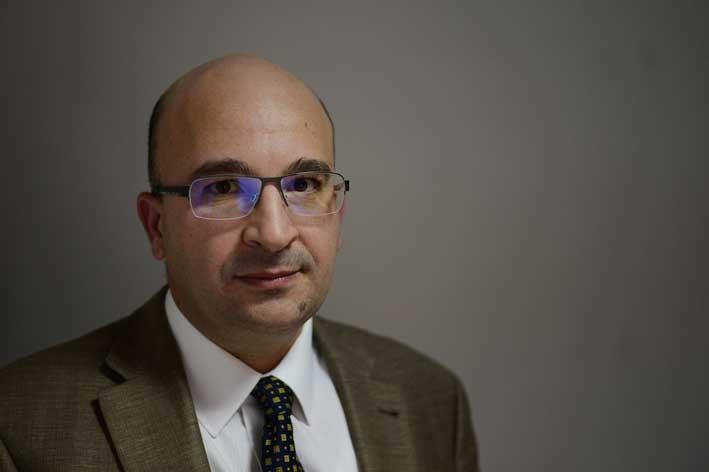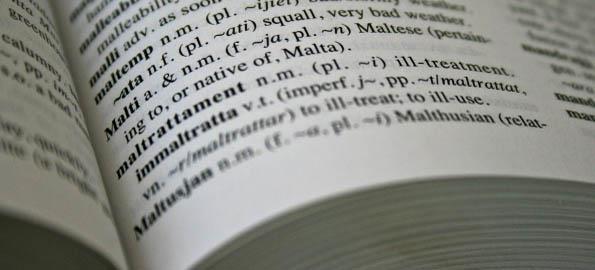You are objecting strongly to Minister Evarist Bartolo’s proposed amendments to the Language Act. Are you opposed to any changes whatsoever?
The Maltese Language Act was set up 10 years ago and it is only natural that some changes would be needed from time to time so as to enable the Council to carry out its function better. What I cannot understand is the dubious reasons behind changes which are not needed, and which do not emanate from either the Public Forum or the report of the Committee, both of which were ordered by Minister Bartolo himself.
Why are you objecting now? Didn’t the Minister consult with you before announcing this reform?
No. The ministry never approached us or the National Council before launching its sham public consultation about the Language Law and the Council. We only heard about it from the evening news bulletin.
What was your reaction?
We protested with the Minister, apologised for the gaffe, and promised to hold a Public Forum about the Council, as stipulated in the Language Law. However, the Public Forum was only a fresh occasion for the Minister to add insult to injury. At the end of a Forum in which all the floor (more than 200 persons) applauded the Council’s work, Minister Bartolo in his closing speech, rather than complimenting the Council for all its hard and unpaid efforts over the last 10 years, dismayed his listeners by announcing that he would appoint a Consultative Council to carry out the “needed” reform in the Language Act.
By this time it was crystal clear that what Minister Bartolo was after was not what both the Public Forum or his Consultative Committee would suggest, and that both were nothing more than scapegoats to feign public consultation.

Wasn’t this a premature conclusion since the work of the Consultative Committee still had to begin?
Clearly, it was not. In Maltese we say Min tafu tistaqsix għalih (You don’t need to ask about someone you know well enough). In fact, we were proved right. Apart from a couple of minor changes, Minister Bartolo’s most serious proposed amendments to the Language Act and to the composition of the Council are totally new and were never suggested by either the Maltese public at the Forum or the members of the Consultative Committee. They are changes that have no other source but the Minister’s undeclared projects for the Maltese Language, and which are not shared by any of the six main institutions promoting Maltese. We simply cannot have a Minister trampling over all public and expert opinions to achieve his undeclared goals.
But what exactly do you disagree with in the proposed changes?
The Consultative Committee had suggested the inclusion in the Council of a representative of the Translation Department at the University of Malta, a member of the Broadcasting Authority, and another one representing the publishers. On the other hand, two academics which were heads of technical committees have lost their seat. This means that instead of 11 members, the Council would be made up of 12.

So why does the amendment say that the Council would have 13 members, not 12?
That is because the Minister decided to include another member from the National Book Council. The Committee was against such a nomination.
What is the problem with having 13 members instead of 12?
It is not the number of members in the Council that matters, but the quality of their credentials, their qualifications and their ability to perform the Council’s terms of reference.
So far, the Language Law guaranteed that 7 of the 11 Council members, that is the majority, would be qualified scholars of Maltese. This balance assured the public that the Council’s decisions would be sound and effective. No wonder our Parliament voted unanimously in favour of such a sound setup.
If the proposed changes were to go through, this will no longer be the case. Necessarily qualified members – and I mean, qualified in the Maltese language, let alone any additional qualifications – will be in a minority, and exactly six out of the 13 Council members. How can Minister Bartolo assure us that his proposed Council would take sound decisions regarding our mother tongue when qualified persons will be in a minority?

I see your point here. Is this your only objection?
Unfortunately not. The Maltese Council operates through a small number of Technical Committees. Anyone will realize the importance of having the best qualified persons at the helm of these sensitive Committees. That is why the present Language Law stipulates that nominations for these positions should be in the hand of the Akkademja tal-Malti and the Department of Maltese at the University, which are considered as the most reliable depositories of research on the Maltese Language.
In the proposed amendments, these two bodies have been relieved of this important function, which is being passed to any 5 Council members... possibly five of the seven unqualified members in its fold! That is why we insist that this is strictly a matter of Quality!
Why would the government, or in this case the Minister, be interested in weakening the qualified majority of the Council?
We can only innocently hope that the Minister just did not do his homework well enough when calculating the checks and balances within the Council.
But – in the light of these obstinate and harmful propositions – can we be blamed to suspect that these are only the first steps towards what Minister Bartolo had declared not so many years ago in Parliament (October 2011), when he suggested that our national language be considered like any other foreign language in our schools at all levels?
Why is language reform such a controversial subject?
History and experiences from around the world have shown us that every language change stirs a hot debate. It’s normal and healthy. At university, I teach a subject called ‘Language Planning’ and one part of it is about orthographic reform. When you study this, you will notice that in some cases, these changes have brought about revolutions. In Germany, an orthographic reform brought with it constitutional crises. It can get that absurd.
What concerns me is that the council has managed to create this harmony between these organisations which have the Maltese language at heart, and certain decisions might weaken all this hard work.